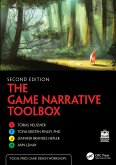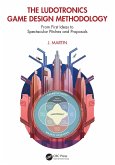This collection, arriving in the wake of the 25th anniversary of 1998's Metal Gear Solid, provides scholars and fans alike with a wide-ranging selection of critical essays on the franchise from diverse disciplinary and thematic perspectives.
With the conclusion of Hideo Kojima's Metal Gear Solid video game series only recently behind us, it is now both possible and essential to study this critically, commercially, and culturally resonant series as a whole. The essays contained in this volume, which are all new contributions from both established and emerging scholars, take up this crucial opportunity to consider and reconsider the cultural, historical, political, philosophical, and aesthetic impact of the Metal Gear Solid games in analyses spanning the series' canonical entries, adding to the understanding of both well-studied installments and under- examined ones.
These contributions connect themes that emerge from the games-such as sexuality and queerness, rhetoric and ethics, and subjectivity and embodiment-while also demonstrating how the series opens up broader questions about ecology, race, gender, militarization, pedagogy, and game design, that demand continued analysis and application. Each essay develops new avenues for theoretical, rhetorical, and political exploration of the Metal Gear Solid series, for Game Studies, and for the study of Popular Culture writ large. As the first collection of critical inquiries into the Metal Gear Solid series, this volume serves as crucial exegesis of and critical companion to any future study of the series by celebrating, critiquing, and critically interrogating its entries' rich cultural and disciplinary import.
With the conclusion of Hideo Kojima's Metal Gear Solid video game series only recently behind us, it is now both possible and essential to study this critically, commercially, and culturally resonant series as a whole. The essays contained in this volume, which are all new contributions from both established and emerging scholars, take up this crucial opportunity to consider and reconsider the cultural, historical, political, philosophical, and aesthetic impact of the Metal Gear Solid games in analyses spanning the series' canonical entries, adding to the understanding of both well-studied installments and under- examined ones.
These contributions connect themes that emerge from the games-such as sexuality and queerness, rhetoric and ethics, and subjectivity and embodiment-while also demonstrating how the series opens up broader questions about ecology, race, gender, militarization, pedagogy, and game design, that demand continued analysis and application. Each essay develops new avenues for theoretical, rhetorical, and political exploration of the Metal Gear Solid series, for Game Studies, and for the study of Popular Culture writ large. As the first collection of critical inquiries into the Metal Gear Solid series, this volume serves as crucial exegesis of and critical companion to any future study of the series by celebrating, critiquing, and critically interrogating its entries' rich cultural and disciplinary import.









